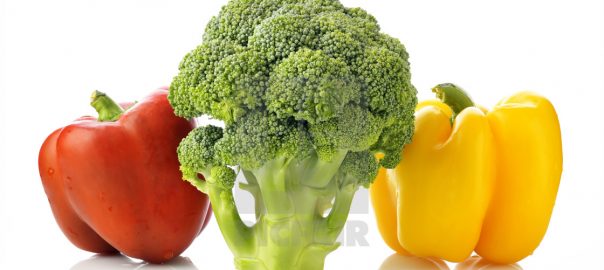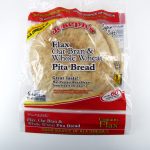
What Are The Best Low Carb Veggies?
Vegetables That Are Perfect for Your Low Carb Diet
Many people misread the carb count of vegetables, not recognizing the difference between total and net carbs. To maintain your diet, it’s important to understand the true carb count of vegetables, which can be determined by the fiber content.
Vegetables can make the perfect side to pair with a high protein, low carb entrée or as a base for a delicious and nutritious bowl. By understanding a vegetable’s actual carb count, you can plan accordingly.
Let’s explore the carb count and health benefits of 15 vegetables in addition to understanding the impact of fiber on each.
Total vs. Net Carbs
Total carbs refer to the total amount of carbs in a food item. This includes carbs in all its forms, digestible or not. For instance, some vegetables are low in carb and high in fiber, which will increase the number of carbs. In most cases, though, this can be a positive and not make them a poor fit for low carb diets.
Net carbs are the amount of carbs that will be absorbed by your body. If a vegetable has 10g of carbs per serving but 8g of fiber, then it contains 2g of net carbs. The formula is total carbs – indigestible carbs (i.e. fiber) = net carbs.
Most foods are measured in total carbs so it’s up to you to determine the net carbs and to give it the approval for your low carb diet. Ultimately, you need to familiarize yourself with the proper method of carb counting.
Remember, most low carb diets call for under 150g of carbs per day. Make sure you understand the requirements of your diet as some can be quite stringent.
Low Carb Vegetables
Here are some vegetables to consider making a regular part of your low carb diet.
Bell Peppers
Bell peppers have a unique sweetness and are a colourful addition to many Mexican dishes or as a topping on low carb pizza. One cup of chopped red peppers contains 6g of net carbs and 3g of fiber. They also contain anti-inflammatory properties.
Broccoli
Broccoli might not be the coolest vegetable but it’s jam packed with nutritional value. It’s considered a superfood and is safe for regular consumption by low carb dieters. You should eat it raw to keep the nutrition intact.
One cup of raw broccoli has 4g of net carbs and 2g of fiber. Broccoli is also a great source of vitamins C and K.
Asparagus
This tasty vegetable is perfect in the springtime and is a nice pairing for many low carb proteins. It offers 4g of net carbs and 4g of fiber per serving. Furthermore, it is believed to be a protective agent against certain types of cancer.
Zucchini
A popular member of the summer squash family, asparagus has a mild taste, cooks very nicely and provides a nice crunch if not overcooked. Because it’s not a winter squash, it doesn’t feature a tough rind—which can be rich in carbs—so it can be enjoyed guilt-free
Per cup, raw zucchini has 3g of net carbs and 1g of fiber. Additionally, it provides a good dose of vitamin C.
Spinach
Spinach is one of the healthiest leafy greens on the market, which is saying a lot. It’s so healthy, in fact, it is known to promote heart health and reduce the likelihood of ailments like cataracts and macular degeneration.
One cup of cooked spinach consists of 3g of net carbs and 4g of fiber. You can also enjoy other positive health properties like vitamin K.
Kale
The love of kale might seem like a fad brought forth by yoga instructors and dieticians but it’s nutrition is not exaggerated. It’s healthy enough to use as a substitute for many leafy greens that are also high in nutritional value.
Per one cup of raw kale, there are 6g of net carbs and 1g of fiber. It contains vitamin C, which can positively impact one’s immunity and improve skin health. It’s a natural way to slow the appearance of aging.
Avocados
Avocados are awesome. They are creamy and filling and can transform ordinary food into something extraordinary. They are also nutrient-dense featuring vitamin C and potassium and should be included in your Mexican cooking or on top of any salad.
One cup of chopped avocado has 3g of net carbs and a whopping 10g of fiber. The one caveat is that they are high in calories and may not contribute to weight loss as other vegetables would.
Cauliflower
Cauliflower is a versatile vegetable with a mild flavour that can be used as a rice substitute or as a dough.
One cup of raw cauliflower has 2g of net carbs and 3g of fibers. Its vitamins K and C content can help lower the chances of experiencing certain heart diseases.
Lettuce
Lettuce might be the most popular vegetable as it is a common topping for hamburgers and sandwiches and is a foundational ingredient for salads. There are several types of lettuce and each has different health properties. Romaine, for instance, contains vitamins A, C and K.
One cup of lettuce has 1g of net carbs and 1g of fiber. It’s another food that can reduce the risk of heart disease.
Celery
Light in flavour, celery is a great snack or salad topping because of its across-the-board nutritional value.
Per cup of chopped celery, there is 1g of net carbs and 2g of fiber. Its other health properties include vitamin K.
Garlic
Garlic is one of the most potent flavour-boosters to include in your diet and it’s super healthy.
One clove has only 1g of net carbs. People with high blood pressure should consider eating more of it.
Onions
Onions are an amazing vegetable. They are a great way to build flavour, they are delicious whether baked or fried or can even be a nice raw garnish.
A half cup of sliced raw onions has 5g of net carbs and 1g of fiber. They are considered a bit higher in carbs than other vegetables but are usually enjoyed only in small quantities because of their strong flavour.
Eggplant
With its soft centre and unique flavour, eggplant is popular in a lot of cuisines and is hearty enough to enjoy as a main course.
One cup of chopped cooked eggplant has 6g of net carbs and 2g of fiber. It is also believed to contribute to heart and brain health.
Artichokes
Artichokes have an intriguing exterior and need to be prepared properly to be fully enjoyed.
A medium artichoke has 4g of net carbs and 10g of fiber. It’s also known to improve both gut and heart health.
Cabbage
Cabbage can add a nice texture contrast to a lot of dishes or can be used as a wrap to replace dough.
One cup of cabbage has 2g of net carbs and 3g of fiber. You can also benefit from its high vitamins C and K content.
Enjoy Veggies Today!
If you are adhering to a low carb diet, be sure to include a ton of vegetables especially ones that are also high in protein. There are a ton of tasty options to choose from!
Learn more about how to count carbs in our Easy Guide to Carb Counting article, and shop our online low carb food store to find all the products you need to make delicious and healthy meals for breakfast, lunch and dinner.






